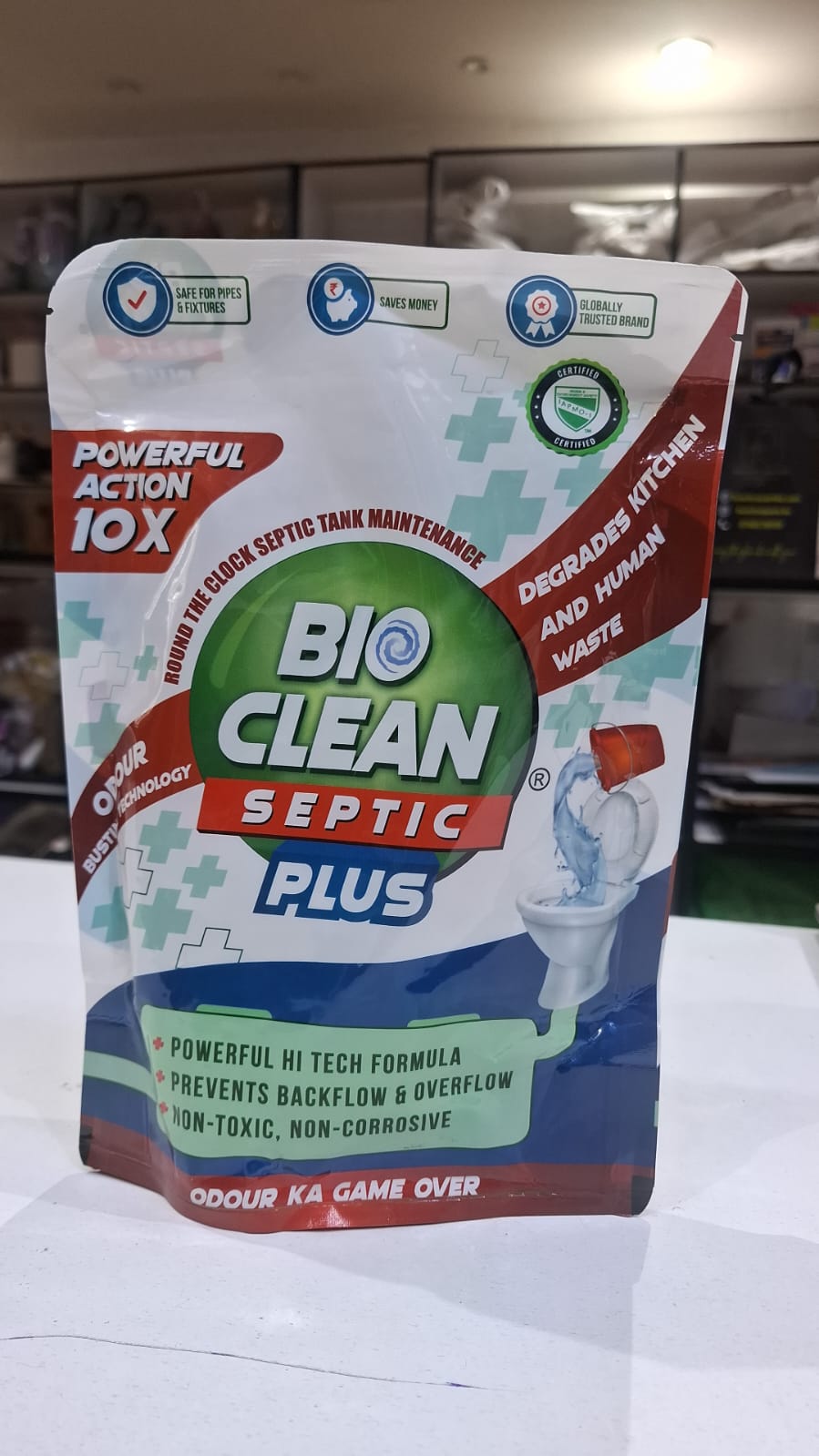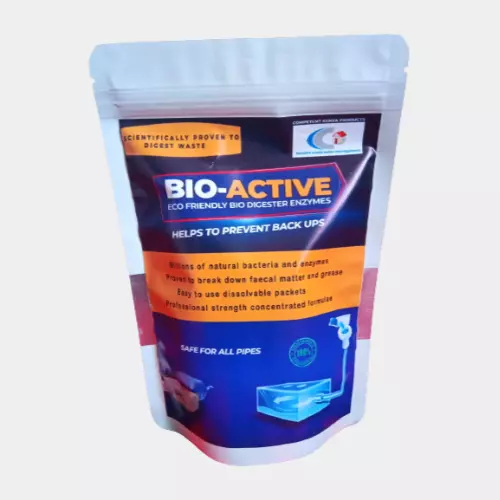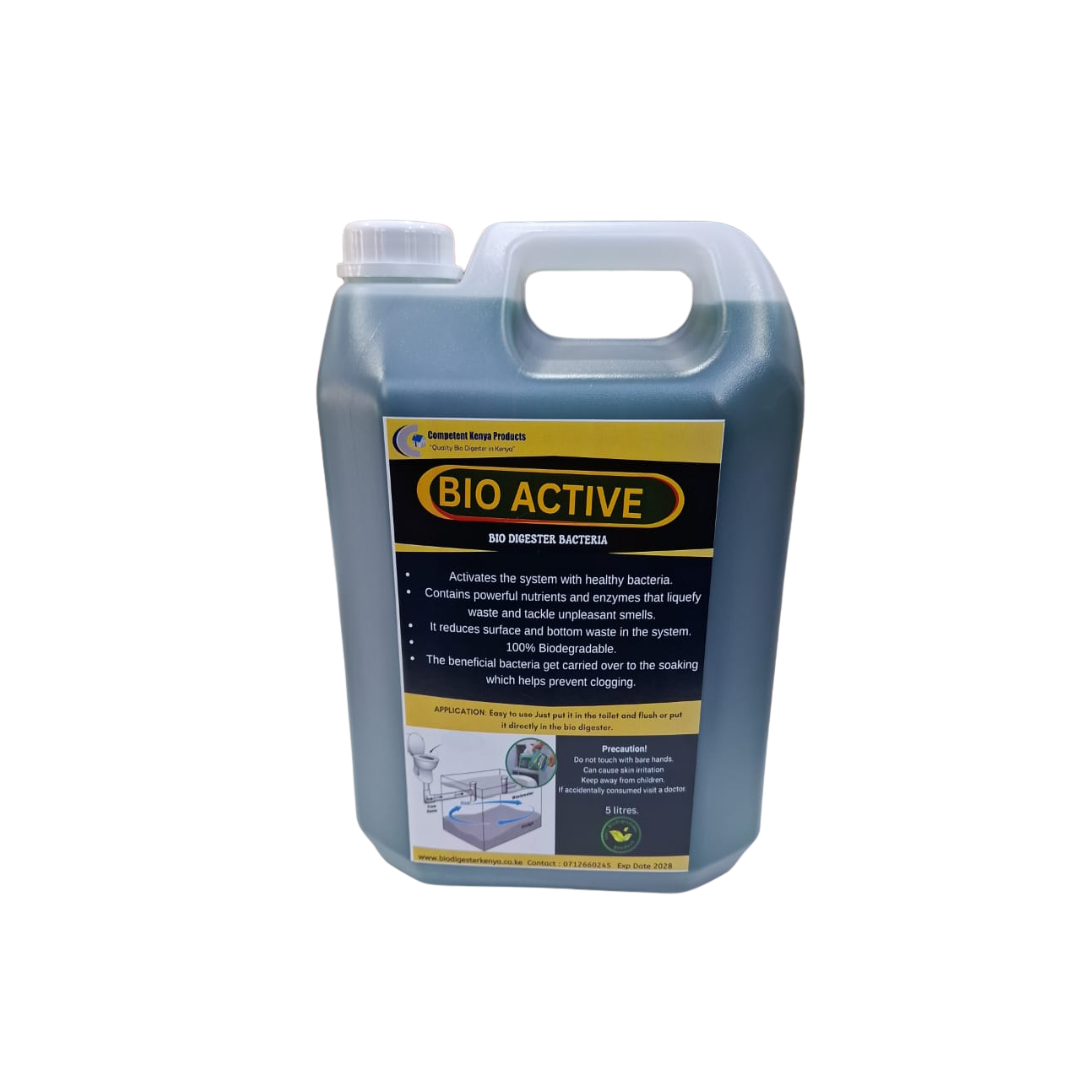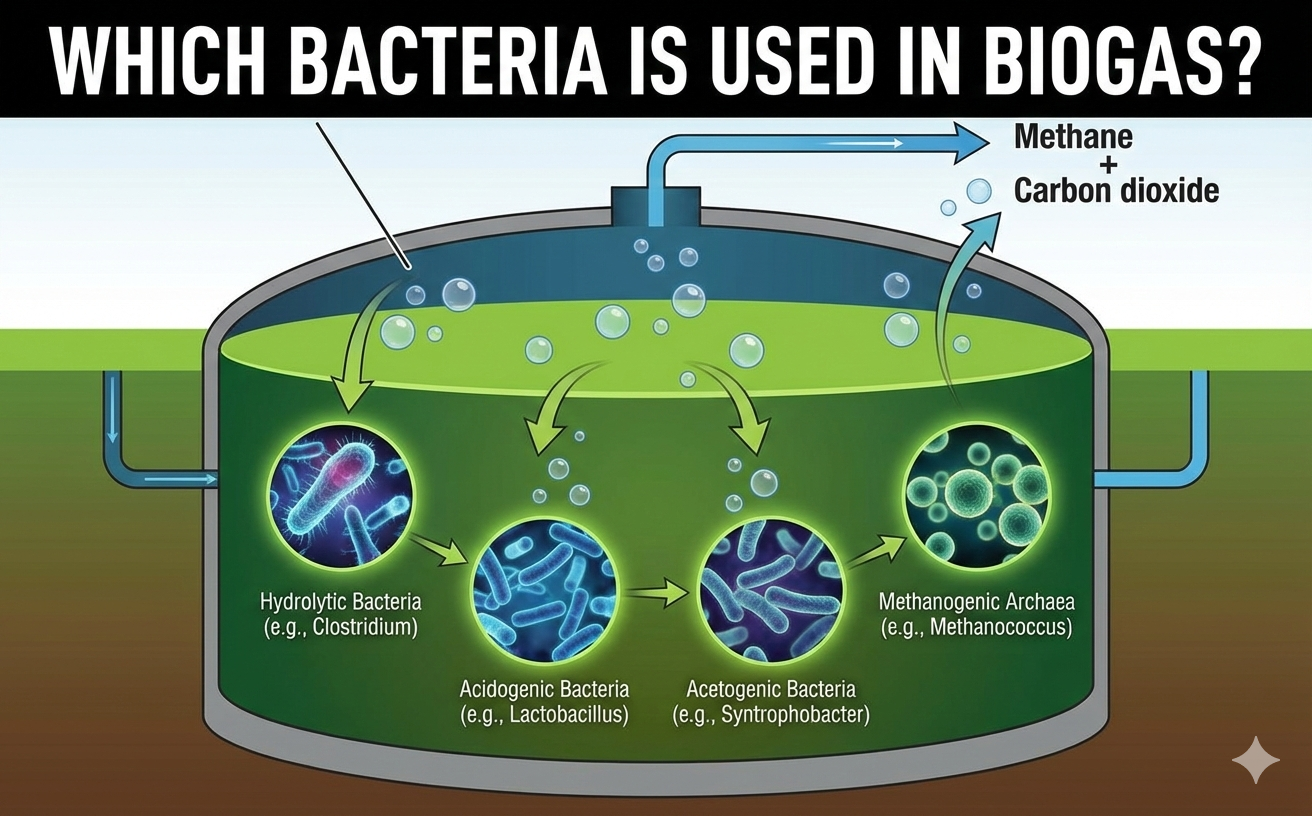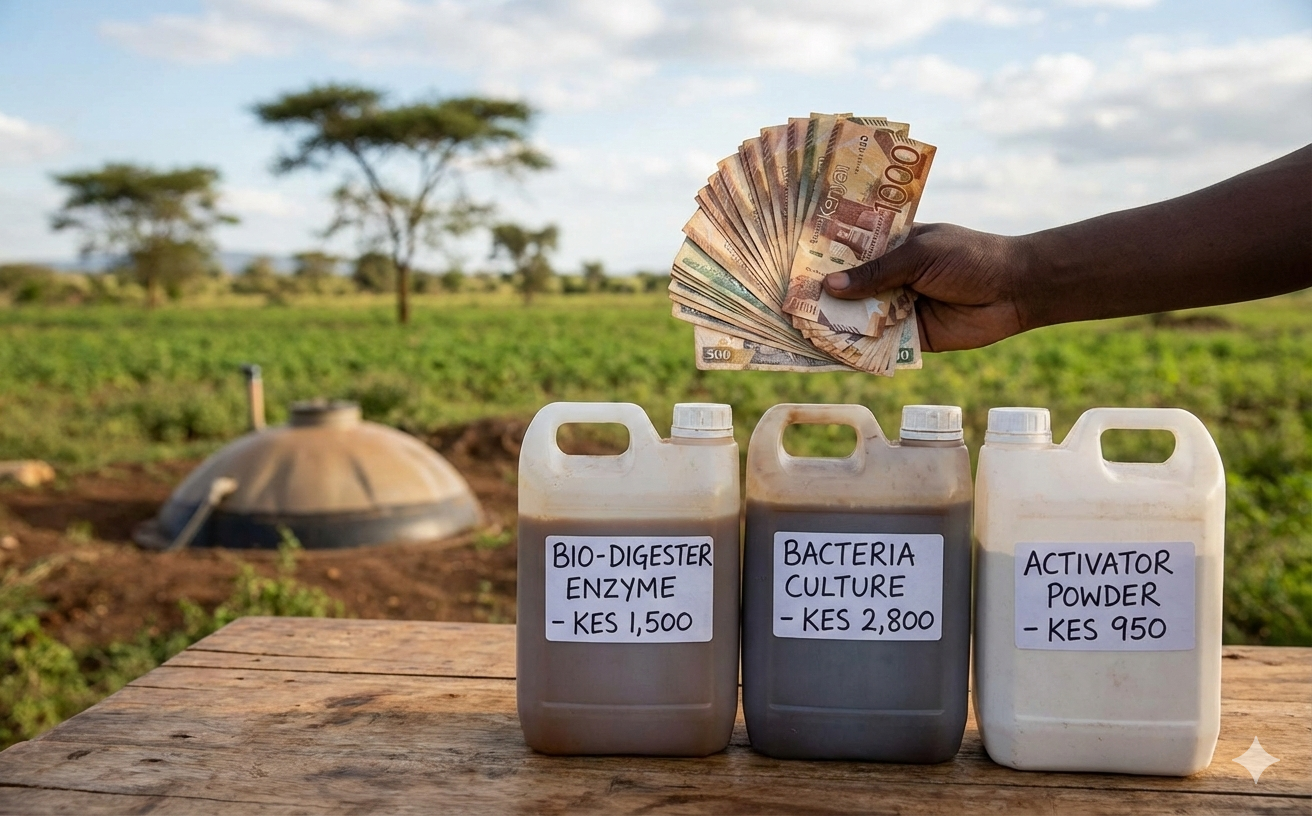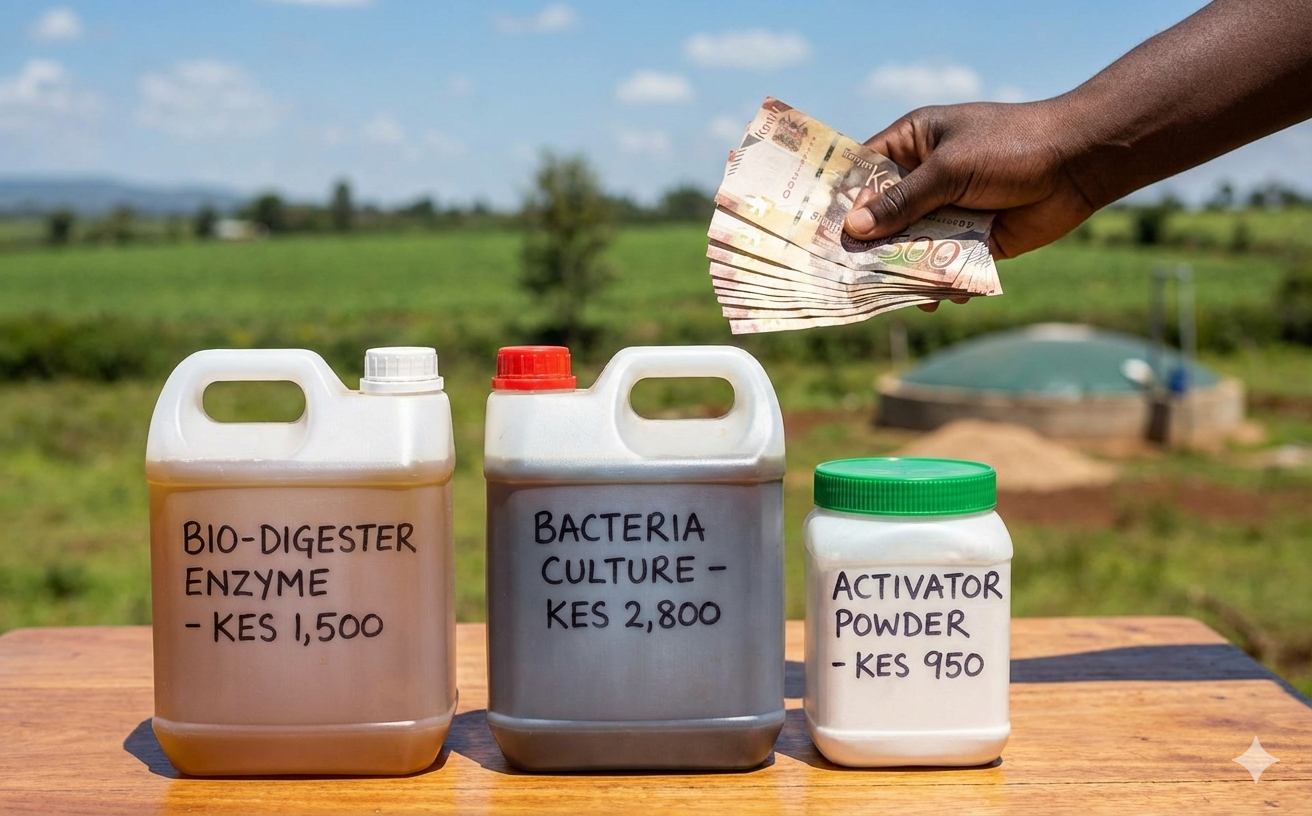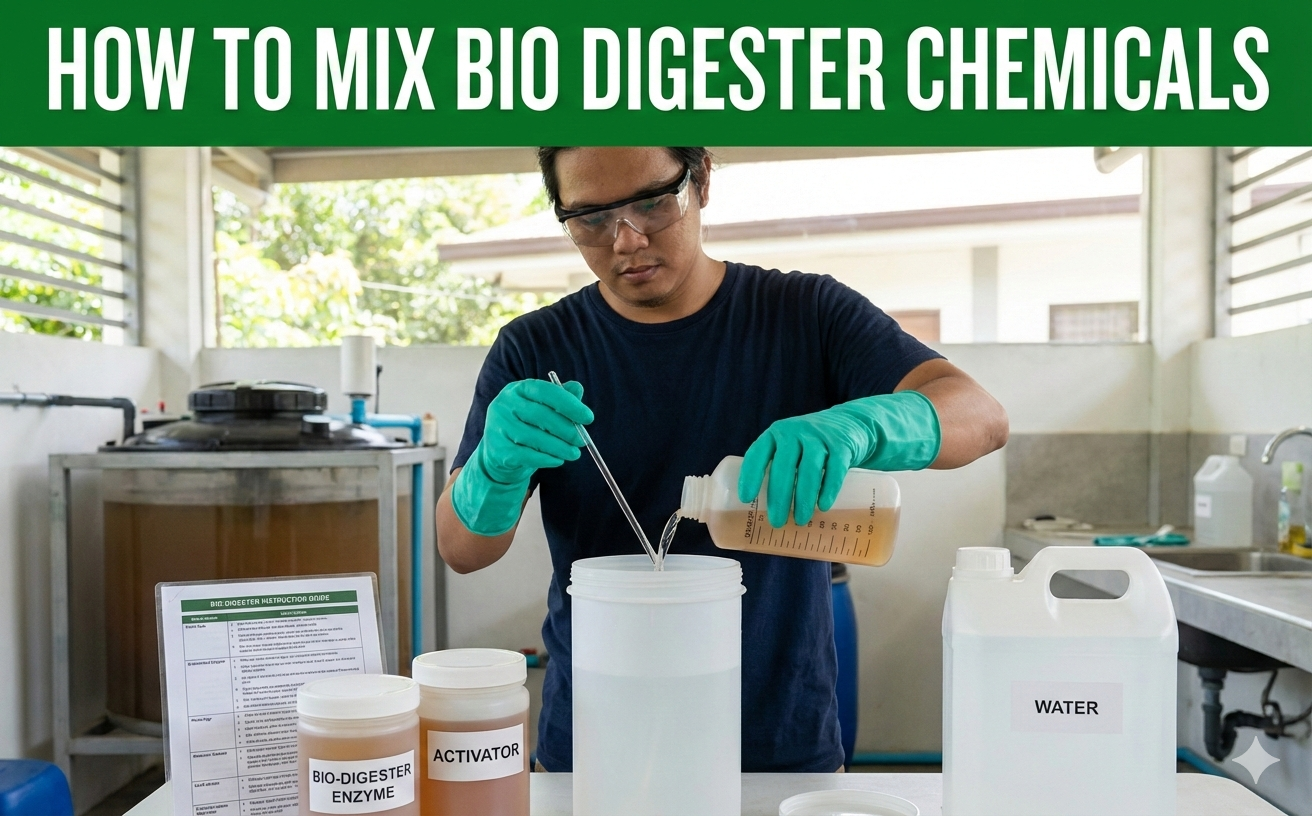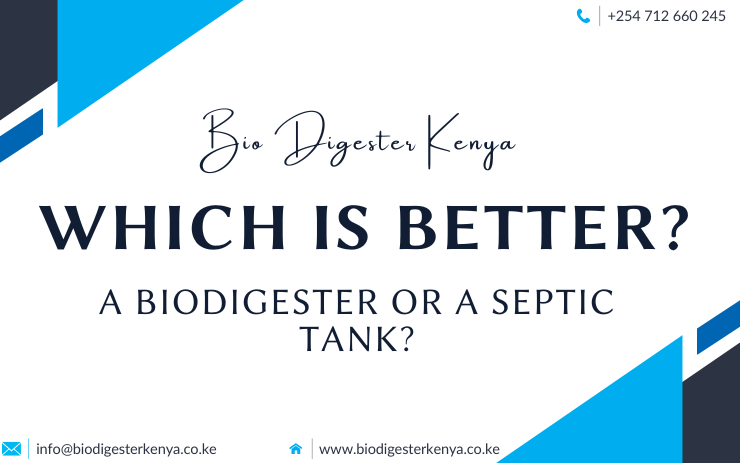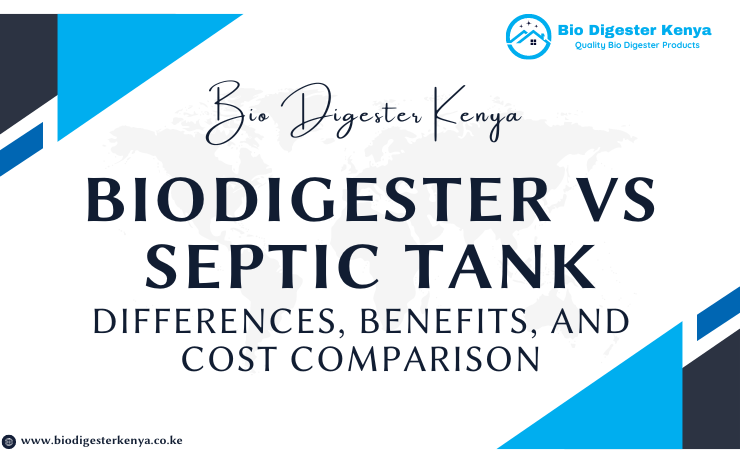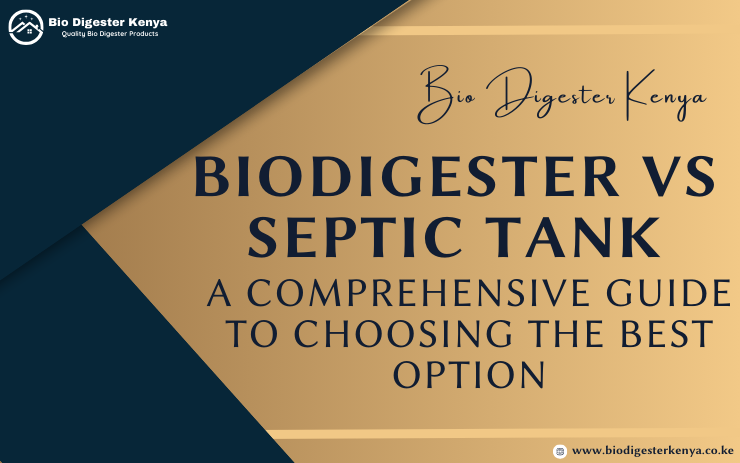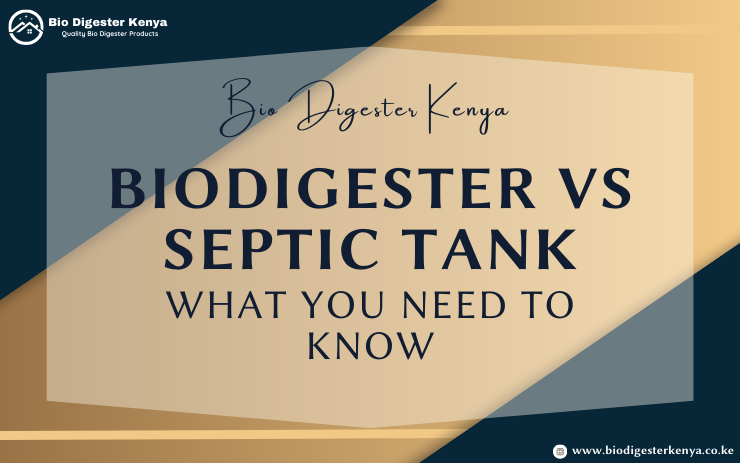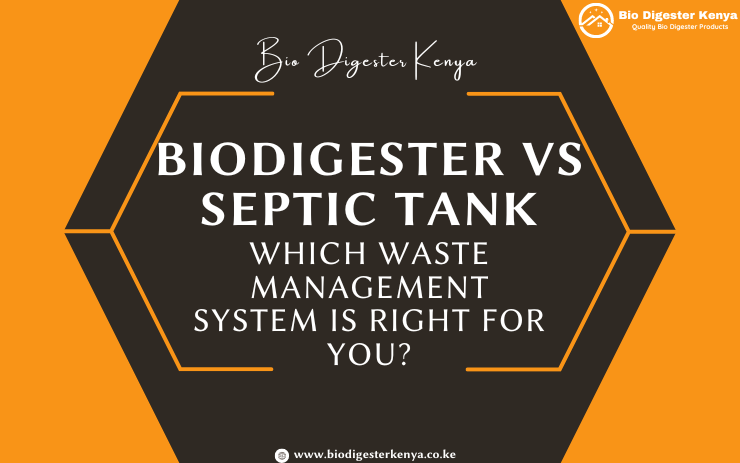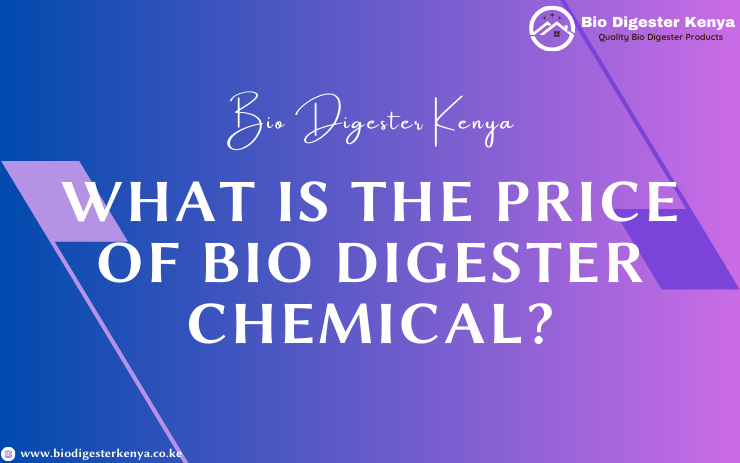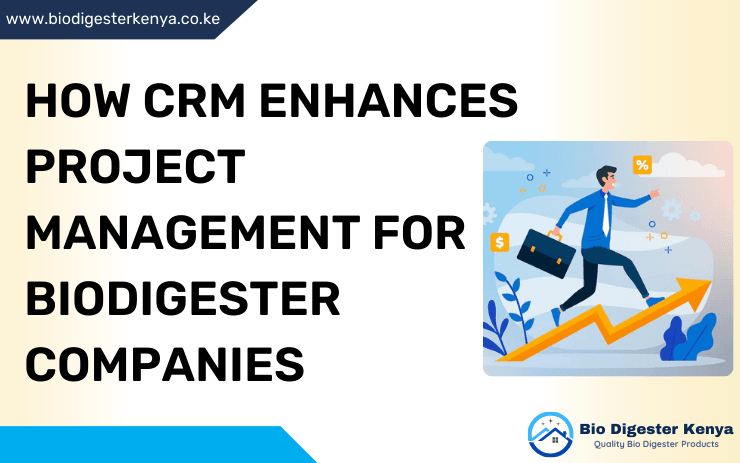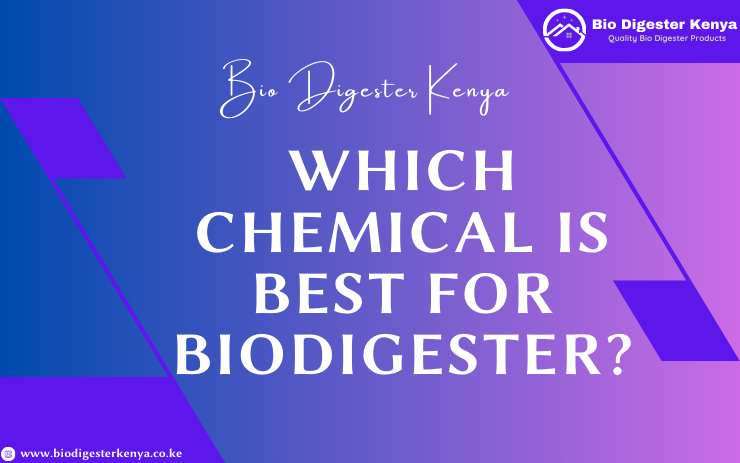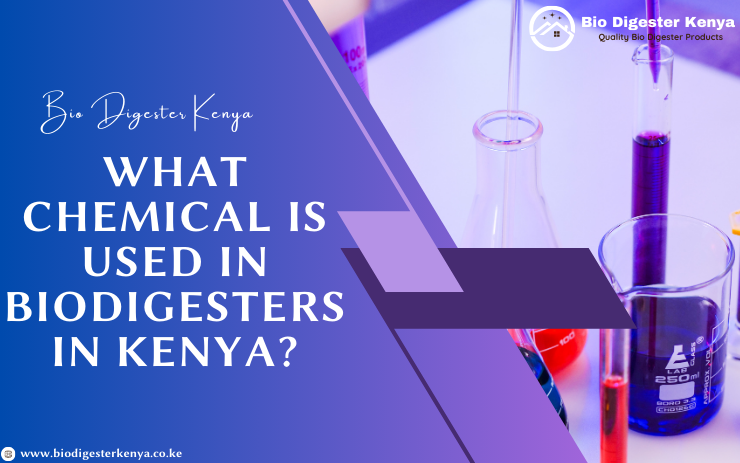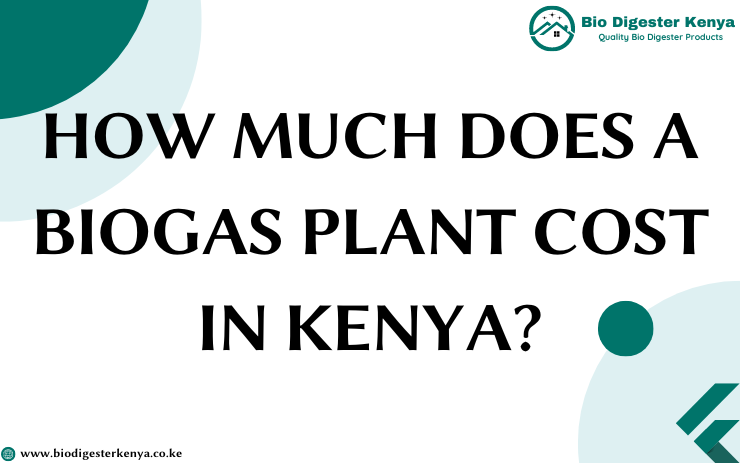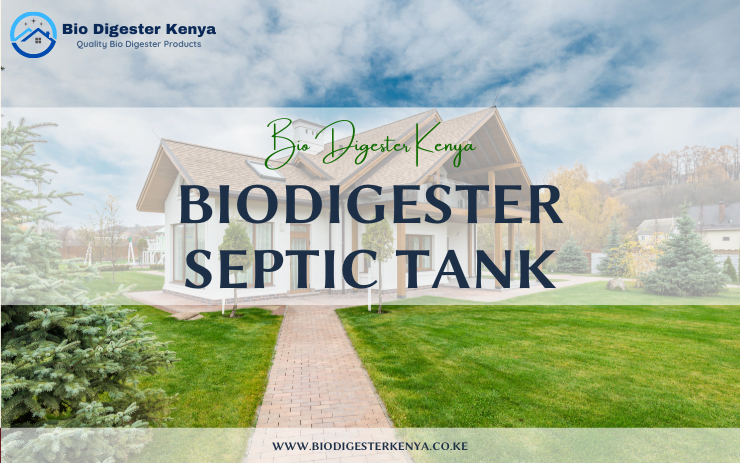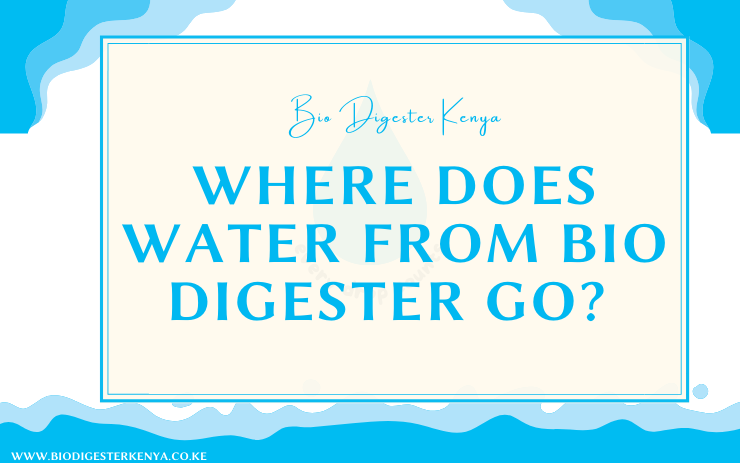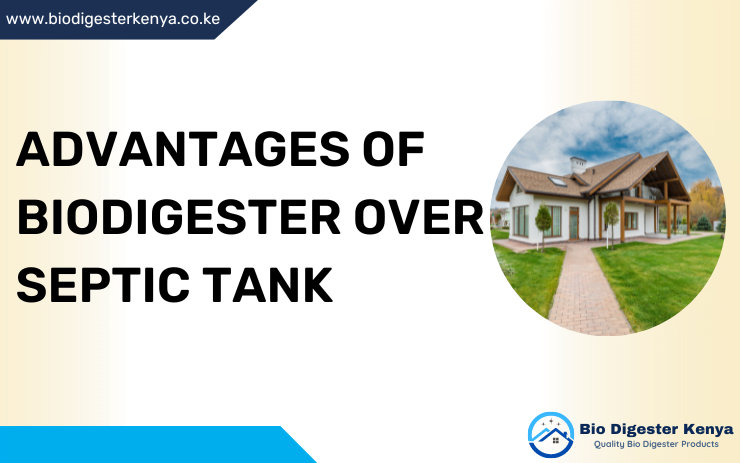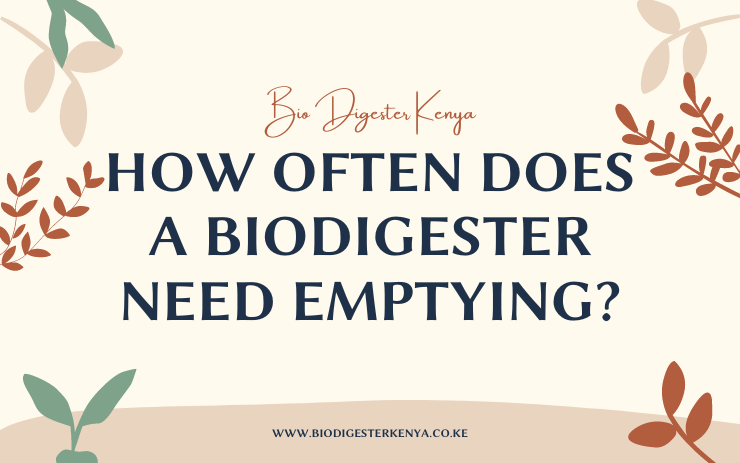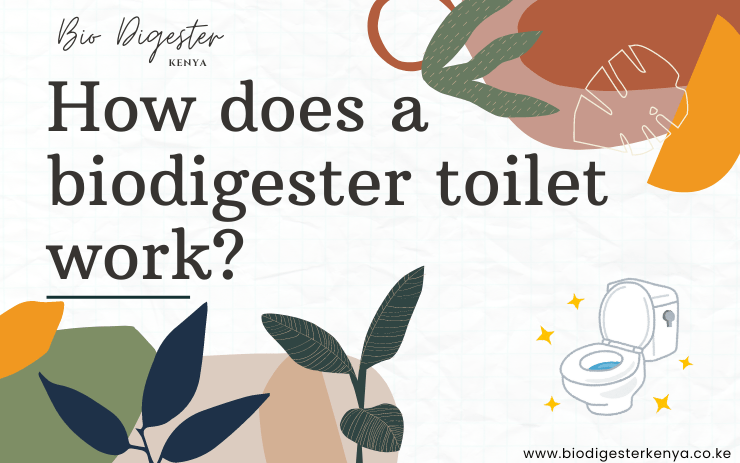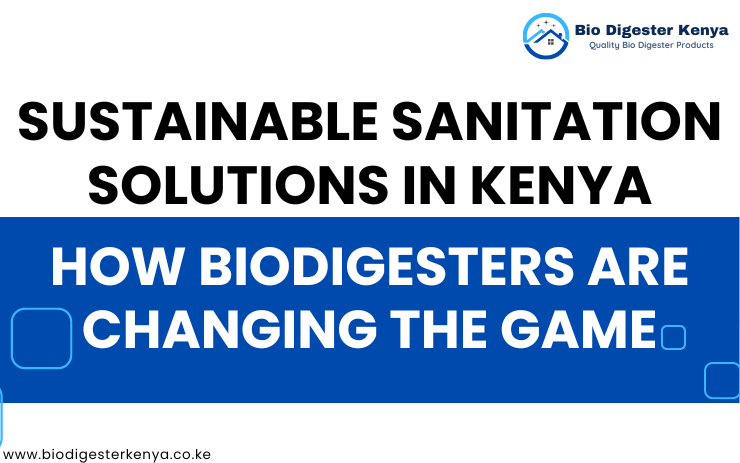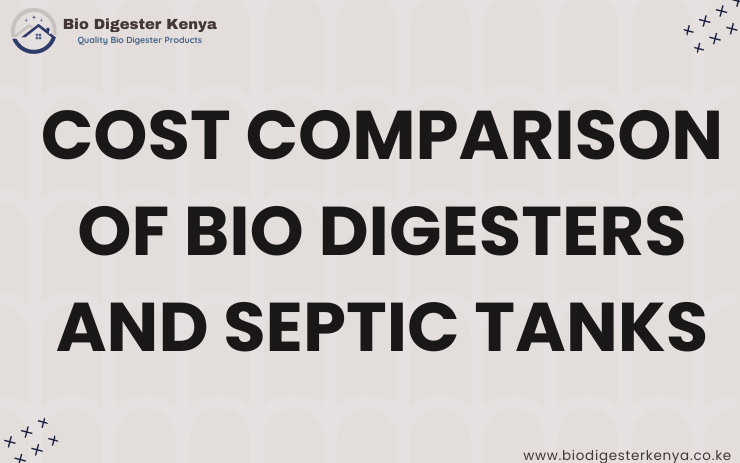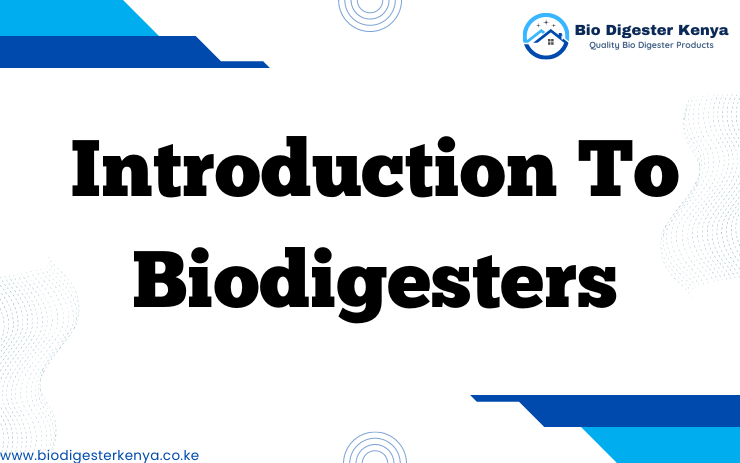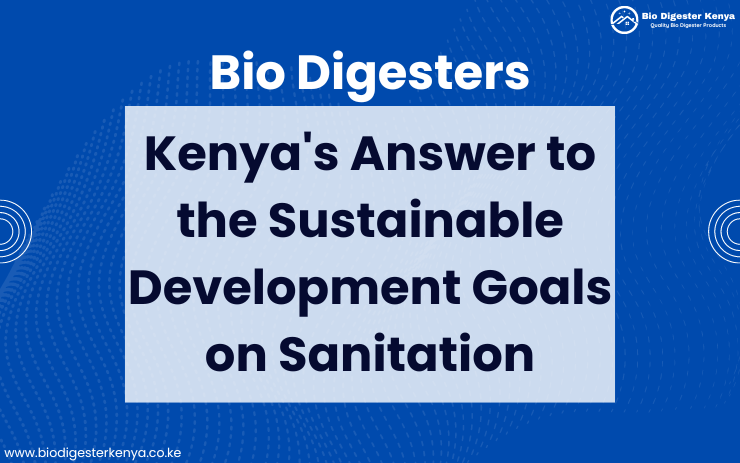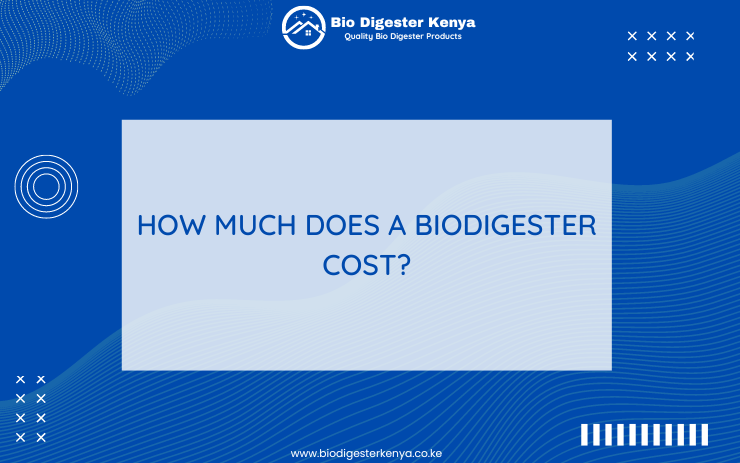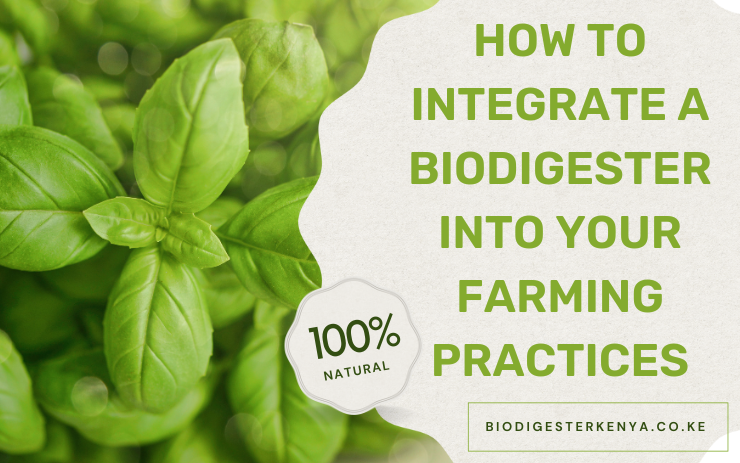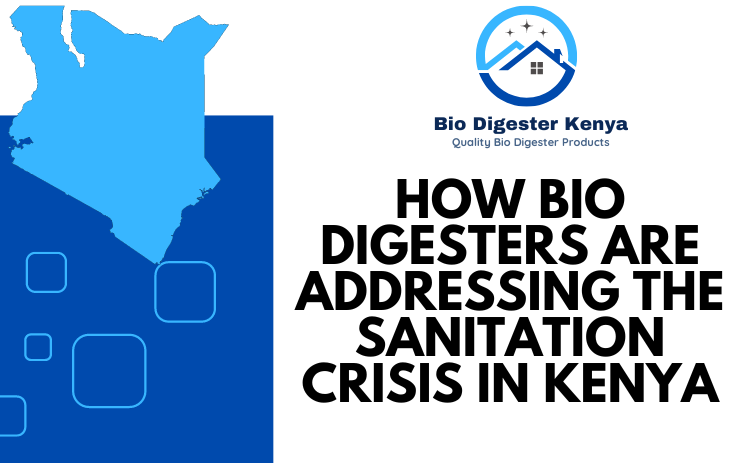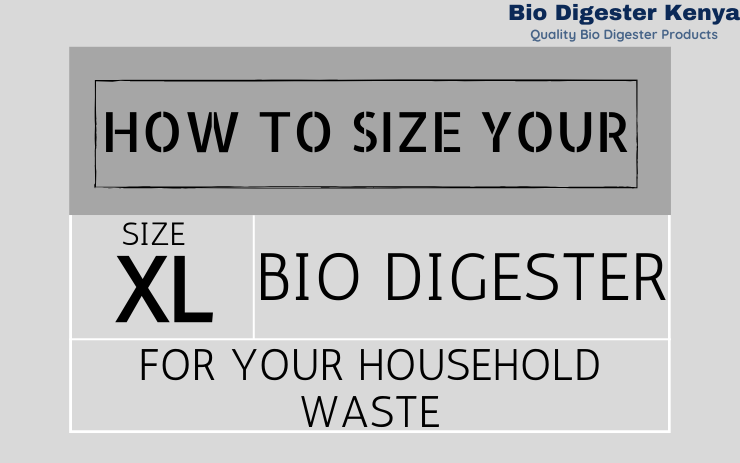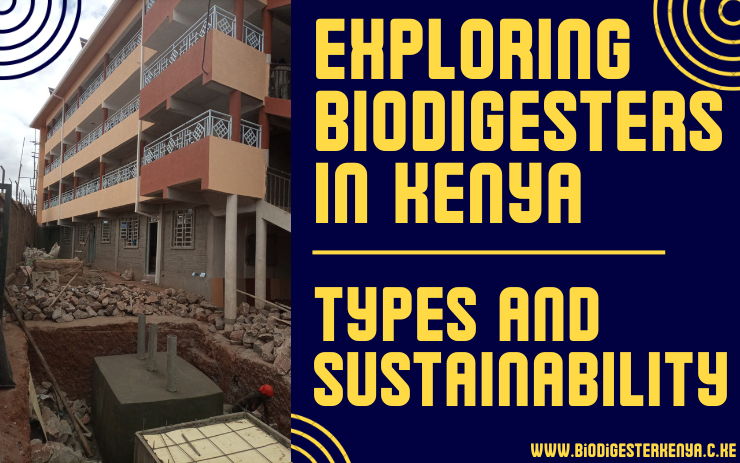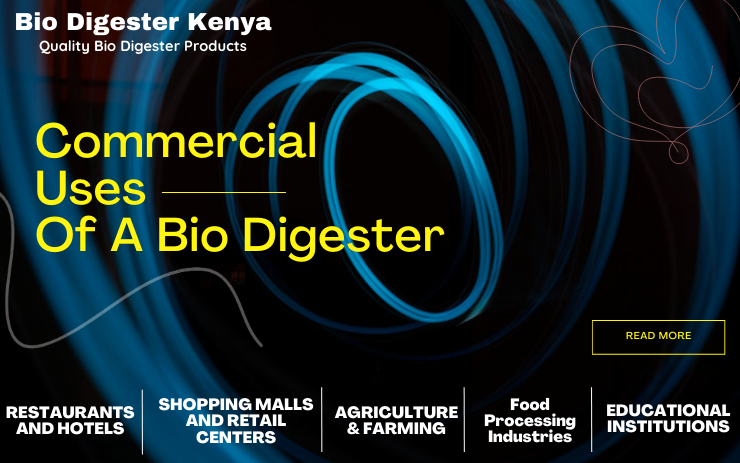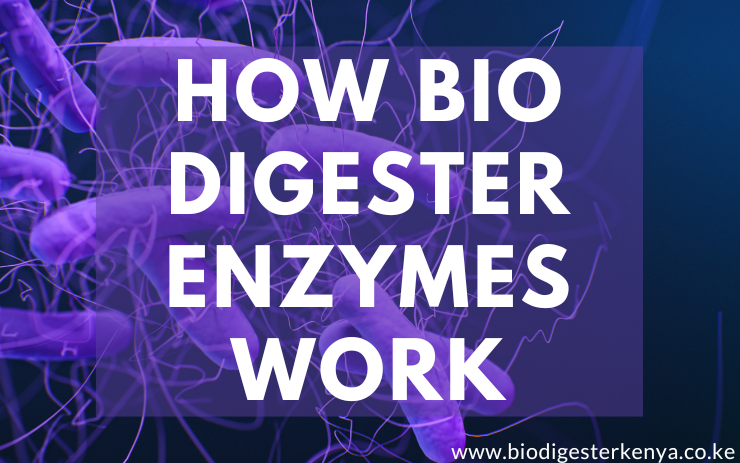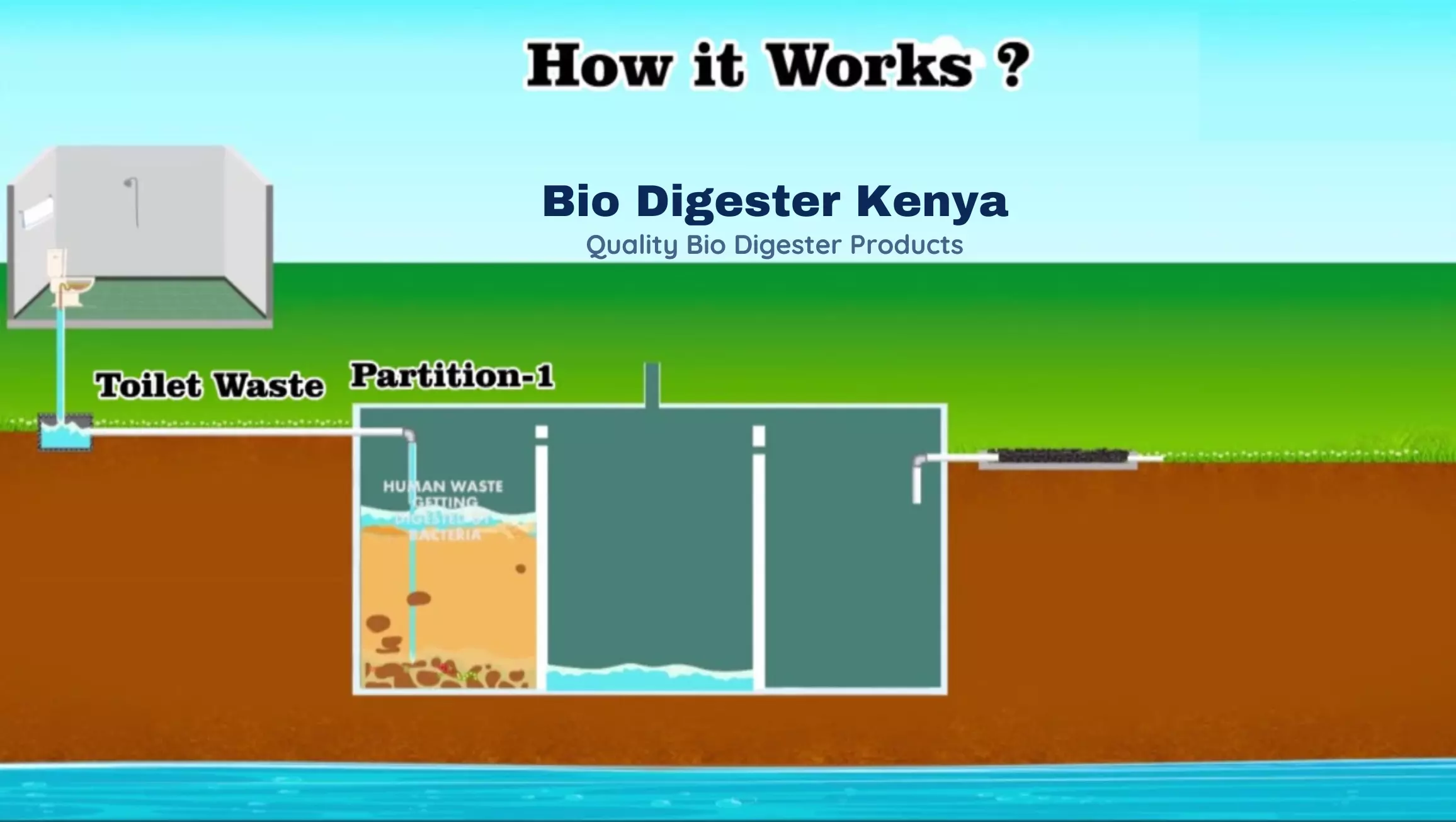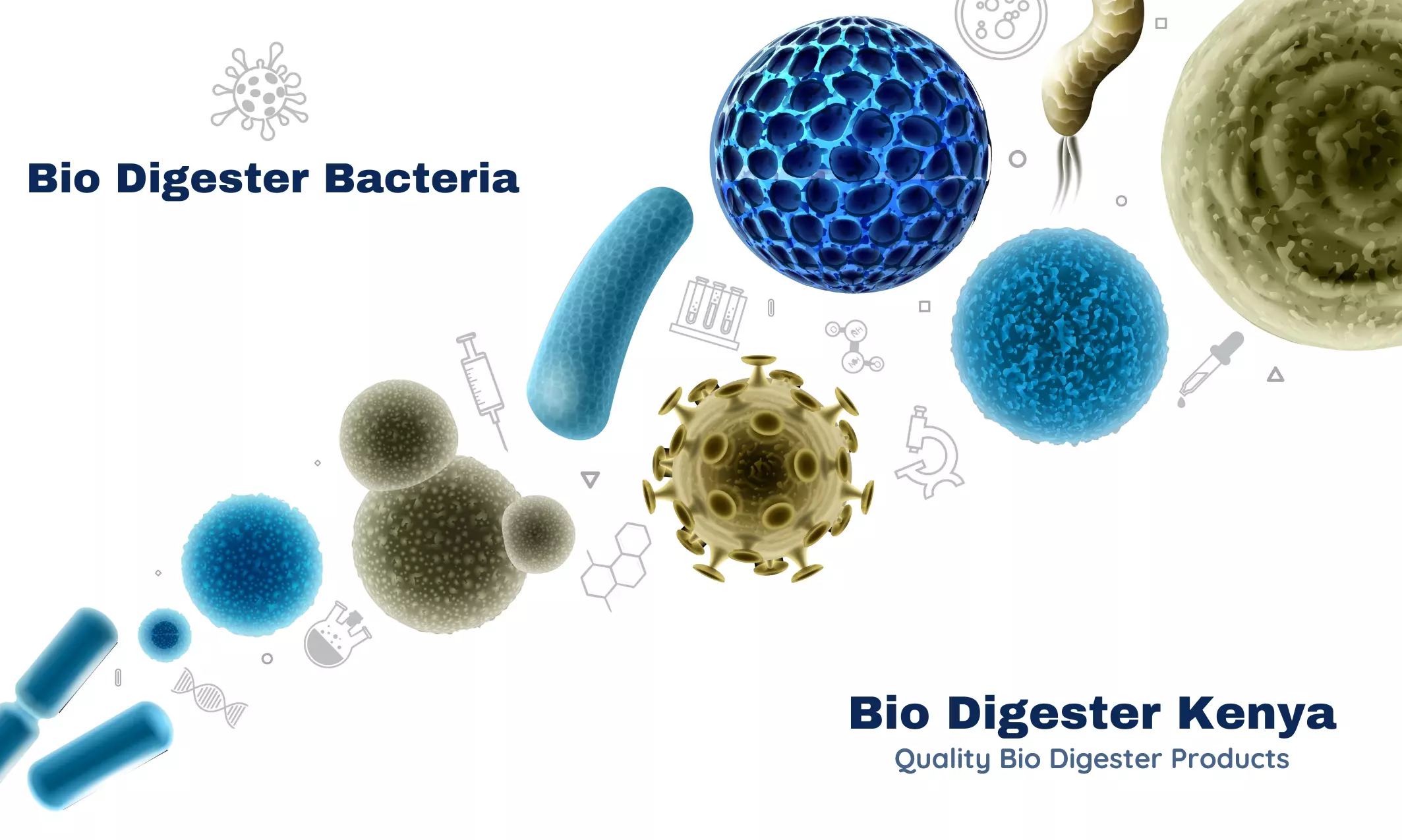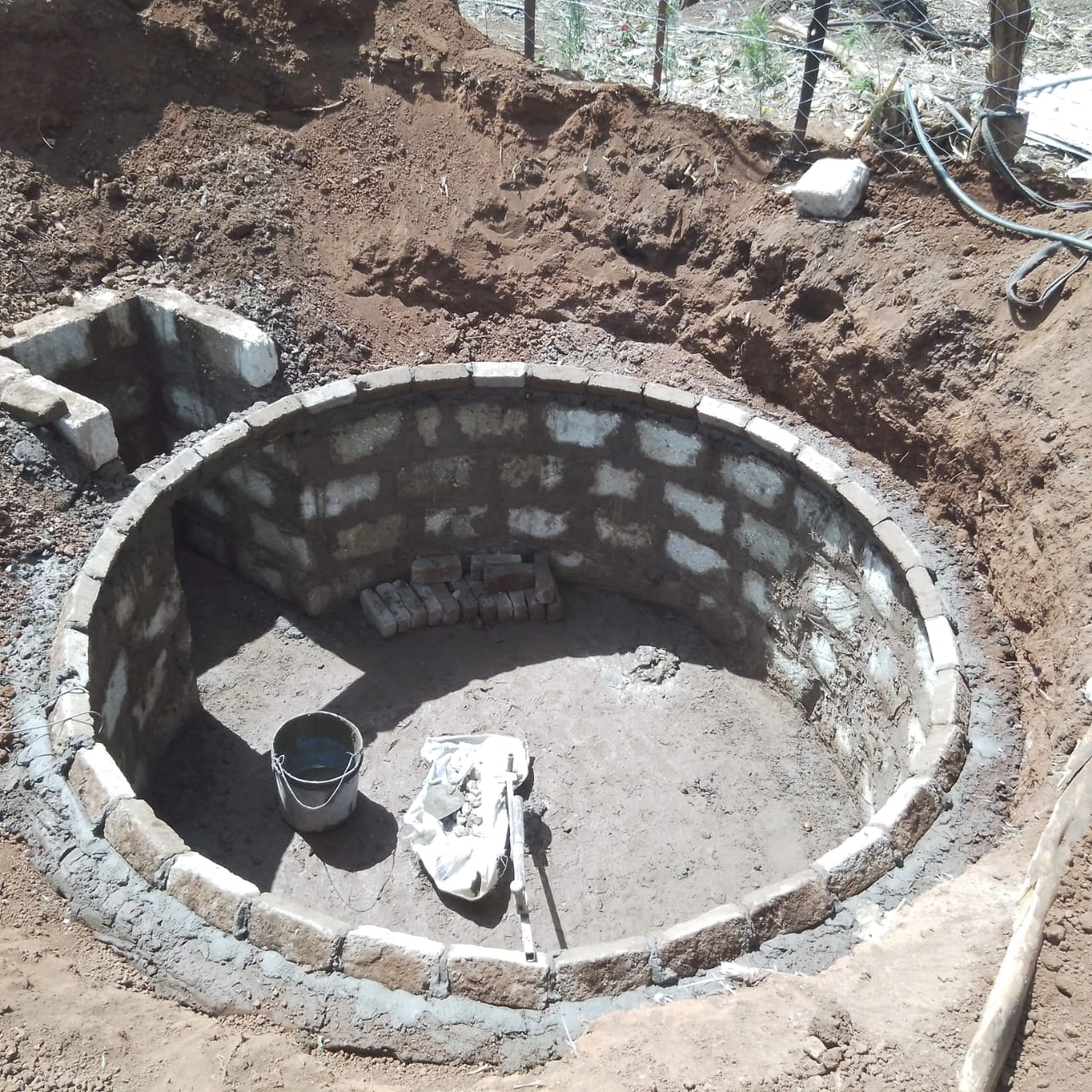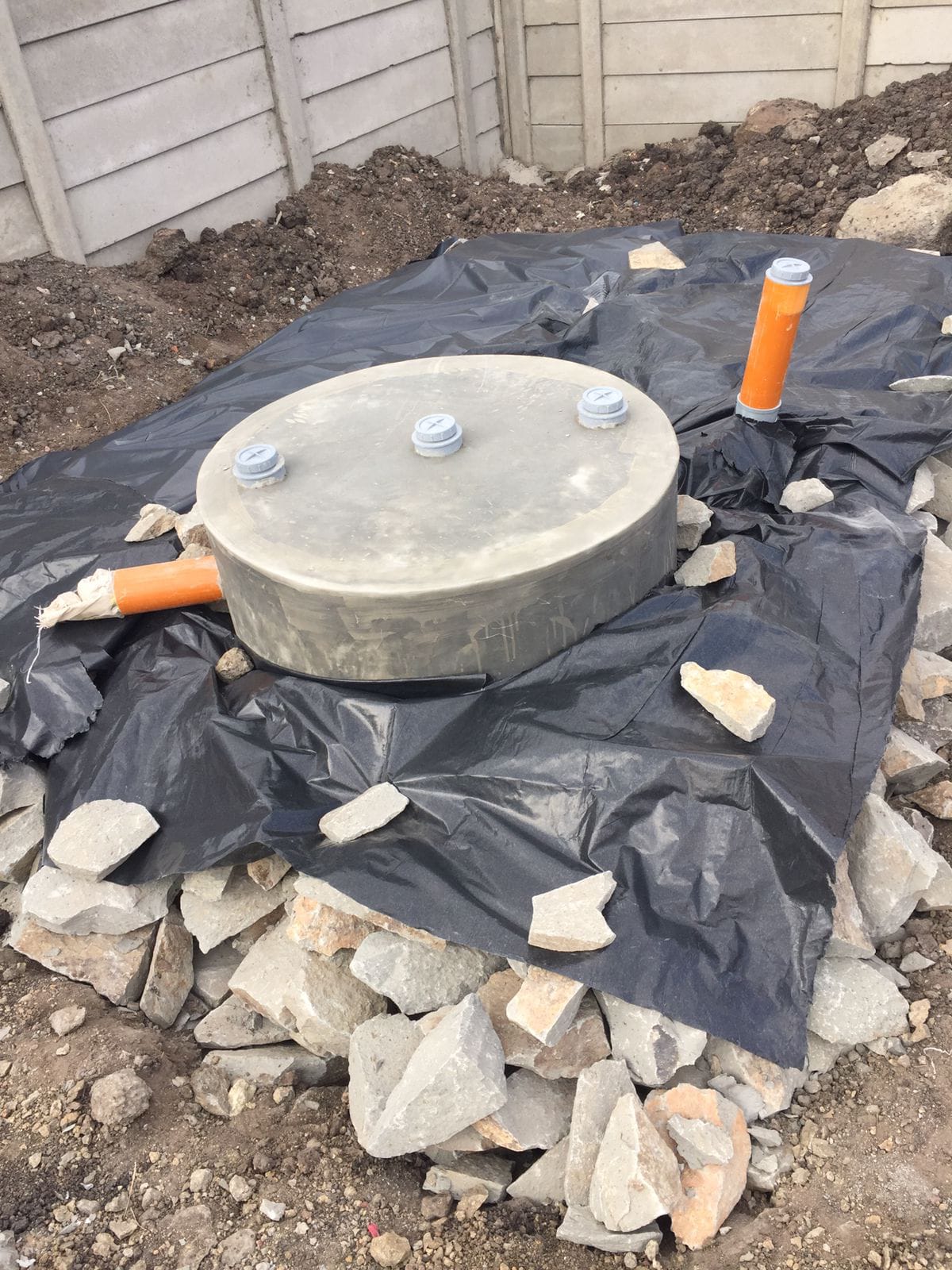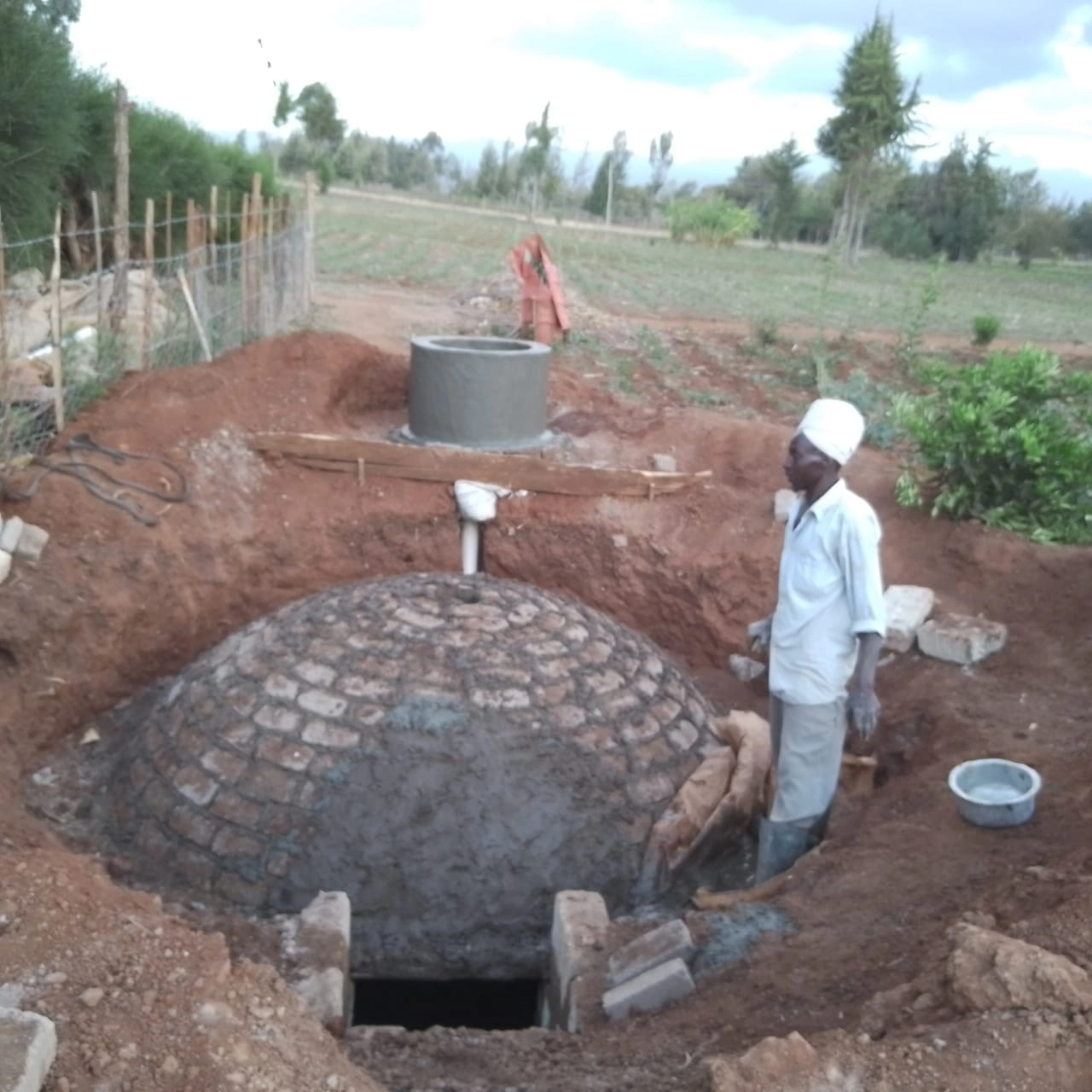Effective waste management is a critical aspect of maintaining hygiene and environmental sustainability.
Improper disposal of human waste can lead to severe health and environmental problems, including water contamination and the spread of diseases.
In Kenya, where urbanization and population growth are increasing the demand for efficient waste management solutions, biodigesters have emerged as a popular and practical solution.
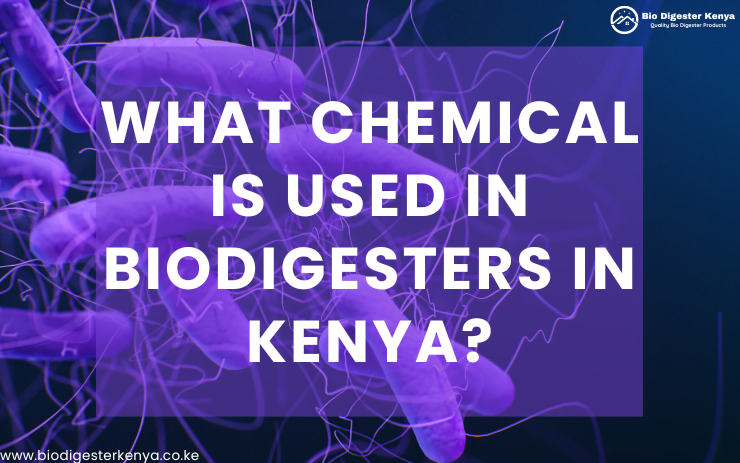
Table of Contents
Introduction
Biodigesters offer a modern, eco-friendly way to manage waste, converting it into harmless byproducts and even useful resources.
At Bio Digester Kenya, we specialize in designing and installing these systems, providing an innovative solution for both residential and commercial spaces.
Our expertise ensures that our clients receive high-quality, reliable biodigester systems that meet their waste management needs while promoting environmental sustainability.
What is a Biodigester?
Definition and Concept
A biodigester is an advanced waste management system that uses biological processes to break down human waste.
Unlike traditional septic tanks that merely store waste, biodigesters actively decompose waste into simpler, non-harmful substances.
This eco-friendly solution reduces the environmental impact of waste disposal and helps promote sustainable living.
Biodigesters utilize a combination of anaerobic bacteria and enzymes to facilitate the decomposition process.
These microorganisms thrive in oxygen-free environments, making biodigesters an ideal solution for areas with limited space and high waste production.
By converting waste into water and biogas, biodigesters not only reduce pollution but also create valuable byproducts that can be repurposed for other uses.
How it Works
The operation of a biodigester involves several key steps:
- Waste Input: Human waste is piped from toilets and other sources directly into the biodigester tank.
This tank is designed to be airtight, creating an anaerobic environment that is conducive to the activity of specific bacteria and enzymes. - Decomposition Process: Inside the biodigester, anaerobic bacteria and enzymes get to work breaking down the organic matter in the waste.
These microorganisms feed on the waste, converting it into simpler compounds through a series of biochemical reactions.
This process not only reduces the volume of waste but also neutralizes harmful pathogens, making the byproducts safe for the environment. - Byproducts: The primary byproducts of this decomposition process are water and biogas.
The water, which is free of harmful contaminants, is then channeled to a soak-away area where it is safely absorbed into the ground.
This method prevents water pollution and replenishes groundwater levels.
Meanwhile, the biogas produced during decomposition, primarily composed of methane and carbon dioxide, can be captured and used as a source of renewable energy.
This biogas can be utilized for cooking, heating, or even generating electricity, providing an additional benefit of energy production from waste.
The Role of Chemicals in Biodigesters
Importance of Chemicals
Chemicals play a pivotal role in the efficiency and effectiveness of biodigesters.
They enhance the natural decomposition processes, ensuring that waste is broken down thoroughly and quickly.
In the context of biodigesters, chemicals primarily refer to biological additives that aid in waste digestion, making the system more efficient and reliable.
Types of Chemicals Used
Various chemicals can be used to boost the performance of biodigesters, but the most effective are enzymes specifically designed for this purpose.
These enzymes are biological catalysts that accelerate chemical reactions, making them ideal for enhancing the decomposition of organic matter in biodigesters.
While there are several types of chemicals that can be introduced into biodigesters, the focus is often on those that can promote the activity of anaerobic bacteria and optimize the breakdown process.
What Chemical is Used in Biodigesters in Kenya?
Primary Chemical: Biodigester Enzymes
In Kenya, the primary chemical used in biodigesters is biodigester enzymes.
These enzymes are specially formulated to break down organic waste efficiently, ensuring that the decomposition process is both thorough and rapid.
Biodigester enzymes are selected for their ability to thrive in the specific conditions found in biodigester systems, such as the absence of oxygen and the presence of various organic materials.
How Biodigester Enzymes Work
Biodigester enzymes function by catalyzing the decomposition of organic matter.
When human waste enters the biodigester, these enzymes interact with the waste, breaking down complex organic molecules into simpler substances.
This process involves several steps:
Hydrolysis: Enzymes break down complex organic polymers like carbohydrates, fats, and proteins into simpler monomers such as sugars, fatty acids, and amino acids.
Acidogenesis: The simpler compounds are further broken down by acidogenic bacteria, producing volatile fatty acids along with gases like hydrogen and carbon dioxide.
Acetogenesis: The volatile fatty acids are then converted into acetic acid by acetogenic bacteria.
Methanogenesis: Finally, methanogenic bacteria convert acetic acid and hydrogen into methane and carbon dioxide (biogas).
This enzyme-driven process not only accelerates waste breakdown but also ensures that the decomposition is complete, leaving behind no harmful residues.
The resulting byproducts—water and biogas—are both environmentally safe and useful.
Benefits of Using Biodigester Enzymes
Utilizing biodigester enzymes offers multiple benefits:
Increased Efficiency: Enzymes significantly speed up the decomposition process, making biodigesters more efficient at managing waste.
Reduced Odors: Efficient breakdown of waste minimizes the production of foul-smelling gases, making biodigesters more pleasant to use.
Minimized Environmental Impact: Complete digestion of waste ensures that harmful pathogens are neutralized, and the byproducts are safe for the environment.
The water produced is clean enough to be absorbed into the ground without causing pollution, and the biogas can be used as a renewable energy source.Cost-Effectiveness: By enhancing the natural processes, enzymes reduce the need for frequent maintenance and can extend the lifespan of the biodigester system.
Advantages of Using Biodigester Enzymes
Efficiency in Waste Breakdown
Biodigester enzymes significantly boost the efficiency of the waste breakdown process.
By enhancing the natural biological decomposition, these enzymes ensure that waste is broken down more rapidly and thoroughly.
The enzymes act as catalysts, speeding up the chemical reactions that convert organic waste into simpler compounds.
This accelerated breakdown means that the biodigester can handle more waste in less time, making it a highly efficient solution for waste management.
Environmental Benefits
Using biodigester enzymes has substantial environmental benefits.
These enzymes help in reducing methane emissions, a potent greenhouse gas, by ensuring that the organic waste is broken down efficiently.
Methane is typically produced during the anaerobic decomposition of organic waste, but with the help of enzymes, this process becomes more controlled, and the methane produced can be captured and used as biogas, reducing its release into the atmosphere.
Additionally, biodigester enzymes prevent groundwater contamination by ensuring that the waste is fully decomposed into non-toxic byproducts, primarily water and biogas.
This results in cleaner waste outputs, protecting local water resources from pollution.
Cost-Effectiveness
While there may be an initial investment in purchasing biodigester enzymes, they prove to be cost-effective in the long run.
The enhanced efficiency of waste breakdown reduces the need for frequent maintenance and cleaning of the biodigester system, lowering operational costs.
Moreover, by extending the lifespan of the biodigester system, these enzymes help avoid costly replacements and repairs.
This long-term reduction in maintenance expenses and the improved durability of the system make biodigester enzymes a smart financial investment for waste management.
How to Use Biodigester Enzymes
Application Process
Applying biodigester enzymes is straightforward and user-friendly.
These enzymes are designed to be easily integrated into the biodigester system.
Generally, the process involves simply adding the enzymes to the biodigester according to the manufacturer’s instructions.
The instructions will provide specific guidelines on how to introduce the enzymes to the system, ensuring they are distributed evenly and start working effectively right away.
Dosage and Frequency
The dosage and frequency of adding biodigester enzymes depend on several factors, including the size of the biodigester system and the volume of waste it processes.
Typically, enzymes are added every few months to maintain optimal performance.
For smaller residential systems, a lower dosage may be sufficient, while larger commercial systems might require more frequent additions.
It is important to follow the manufacturer’s recommendations for dosage to ensure the enzymes work effectively.
Regular application ensures continuous and efficient waste breakdown, maintaining the overall health and performance of the biodigester system.
Biodigester enzymes offer significant advantages in terms of efficiency, environmental impact, and cost-effectiveness.
They enhance the waste breakdown process, reduce harmful emissions, prevent pollution, and lower maintenance costs.
At Bio Digester Kenya, we provide high-quality biodigester enzymes that ensure our biodigester systems operate at peak performance, offering our clients a reliable, eco-friendly, and cost-effective waste management solution.
By following the proper application and dosage guidelines, users can maximize the benefits of these enzymes, contributing to a cleaner and more sustainable environment.
Factors Influencing the Choice of Chemicals
Type of Waste
The type of waste being processed is a crucial factor in determining the appropriate chemicals or enzymes to use in a biodigester.
Different types of waste, such as human waste, food waste, or agricultural waste, have varying compositions and breakdown rates.
For instance, human waste typically requires specific enzymes that can effectively decompose organic matter and pathogens.
The presence of fats, oils, and greases (FOG) in certain types of waste may necessitate the use of specialized enzymes that can break down these substances efficiently.
Therefore, understanding the specific nature of the waste being treated is essential to select the most effective biodigester enzymes and ensure optimal performance.
System Size
The size of the biodigester system also plays a significant role in the choice and amount of enzymes required.
Larger systems, which handle higher volumes of waste, will naturally require a greater quantity of enzymes to maintain efficiency and ensure complete waste breakdown.
Conversely, smaller residential systems may need fewer enzymes but still require regular maintenance to keep the system functioning effectively.
The dosage and frequency of enzyme application should be adjusted based on the system’s capacity and the amount of waste it processes.
Properly scaling the enzyme usage to match the system size is crucial for maintaining the efficiency and longevity of the biodigester.
Environmental Conditions
Environmental factors such as temperature and humidity can significantly influence the performance of biodigester enzymes.
Enzymatic activity is often temperature-dependent, with most enzymes performing optimally within a specific temperature range.
In colder climates, the decomposition process might slow down, necessitating the use of enzymes that are effective at lower temperatures or additional measures to maintain an optimal operating environment.
Humidity levels can also affect the efficiency of the enzymes and the overall biodigestion process.
Ensuring that the biodigester operates within the recommended environmental conditions is essential for maximizing the effectiveness of the enzymes and maintaining consistent waste breakdown.
Common Misconceptions about Biodigester Chemicals
Chemicals vs. Natural Processes
A common misconception is that using chemicals in biodigesters is unnatural and counterproductive to eco-friendly waste management.
However, biodigester enzymes are specifically designed to enhance natural biological processes.
These enzymes are biological catalysts that accelerate the decomposition of organic matter, mimicking and boosting the naturally occurring microbial activity in the biodigester.
Far from being harmful, these enzymes support the natural breakdown of waste, making the process more efficient and effective.
By using biodigester enzymes, we can achieve faster waste decomposition and better manage the byproducts, such as biogas and water, without disrupting the natural ecological balance.
Safety Concerns
Another misconception is related to the safety of biodigester chemicals.
Some people worry that these chemicals might be harmful to the environment or human health.
In reality, biodigester enzymes are formulated to be safe and environmentally friendly.
When used as directed, they pose no risk to human health or the environment.
These enzymes are biodegradable and non-toxic, ensuring that they do not leave harmful residues or pollutants.
Moreover, by enhancing the breakdown of waste, they help prevent the accumulation of harmful pathogens and reduce the potential for water contamination.
Using biodigester enzymes responsibly and according to the manufacturer’s guidelines ensures both the safety and effectiveness of the waste management system.
In summary, the choice and use of biodigester chemicals, specifically enzymes, are influenced by factors such as the type of waste, system size, and environmental conditions.
Addressing common misconceptions, it is important to understand that these enzymes support natural processes and are safe when used correctly.
At Bio Digester Kenya, we provide high-quality biodigester enzymes tailored to the specific needs of our clients, ensuring efficient and environmentally sustainable waste management solutions.
Comparison: Biodigester Enzymes vs. Traditional Chemicals
Effectiveness
When it comes to breaking down waste, biodigester enzymes have a significant edge over traditional chemicals.
Traditional chemicals may only partially break down waste, often leaving behind harmful residues that can clog the system and require further treatment.
On the other hand, biodigester enzymes are specifically designed to catalyze the complete decomposition of organic matter.
These enzymes enhance the natural microbial activity within the biodigester, ensuring that waste is broken down quickly and thoroughly.
This comprehensive breakdown process not only improves the efficiency of the biodigester but also minimizes the risk of blockages and maintenance issues.
Environmental Impact
The environmental impact of waste treatment methods is a critical consideration in choosing between biodigester enzymes and traditional chemicals.
Traditional chemicals, such as harsh acids and bases, can have detrimental effects on the environment.
They can contaminate soil and groundwater, disrupt local ecosystems, and pose health risks to humans and wildlife.
In contrast, biodigester enzymes are eco-friendly and biodegradable.
They work by enhancing natural biological processes without introducing harmful substances into the environment.
By using biodigester enzymes, you contribute to a sustainable and environmentally responsible waste management system, reducing your ecological footprint.
Cost
Cost is always a factor when deciding on waste management solutions.
While the initial cost of biodigester enzymes may be higher compared to traditional chemicals, they offer substantial long-term savings.
Traditional chemicals often require frequent reapplication and can lead to increased maintenance costs due to their corrosive nature and the incomplete breakdown of waste.
Biodigester enzymes, however, improve the efficiency and longevity of the system by ensuring complete waste decomposition and reducing the need for frequent maintenance.
Over time, the reduced maintenance costs and extended lifespan of the biodigester system make biodigester enzymes a cost-effective choice.
Why Choose Biodigester Enzymes from Bio Digester Kenya?
Quality and Reliability
At Bio Digester Kenya, we are committed to providing the highest quality biodigester enzymes.
Our products are rigorously tested to ensure they meet the highest standards of effectiveness and reliability.
By choosing our biodigester enzymes, you can be confident that your waste management system will operate efficiently and effectively.
Our enzymes are specially formulated to catalyze the complete breakdown of waste, ensuring that your biodigester remains clog-free and functional for years to come.
Customer Support
We believe that excellent customer support is essential to getting the most out of your biodigester system.
Our knowledgeable and friendly team is always ready to assist you with any questions or issues you may encounter.
Whether you need guidance on enzyme application, system maintenance, or troubleshooting, we are here to help.
Our commitment to customer satisfaction means that you can rely on Bio Digester Kenya not just for quality products but also for ongoing support and assistance.
Success Stories
Our customers’ success stories speak volumes about the effectiveness of our biodigester enzymes.
Many residential and commercial clients have successfully used our products to maintain efficient and eco-friendly waste management systems.
These success stories highlight the transformative impact of our biodigester enzymes, from reducing odors and minimizing maintenance needs to promoting environmental sustainability.
By choosing Bio Digester Kenya, you join a growing community of satisfied customers who have made the switch to a more effective, eco-friendly, and cost-efficient waste management solution.
Frequently Asked Questions (FAQs)
1. Are biodigester enzymes safe for the environment?
Yes, biodigester enzymes are designed to be environmentally friendly, reducing methane emissions and preventing groundwater contamination.
2. How often should biodigester enzymes be added?
Enzyme refills are typically needed every few months to maintain optimal performance.
3. Can biodigester enzymes handle all types of waste?
Biodigester enzymes are primarily designed for human waste but can handle organic kitchen waste in some cases.
4. What happens if the wrong chemical is used?
Using the wrong chemical can disrupt the digestion process and damage the system. Always use recommended biodigester enzymes.
5. How can I purchase biodigester enzymes?
You can purchase biodigester enzymes directly from Bio Digester Kenya. Contact us for more information and to place your order.
